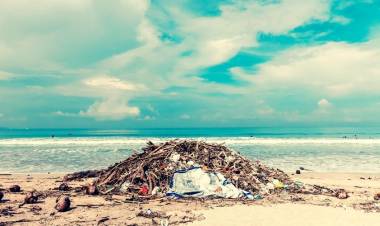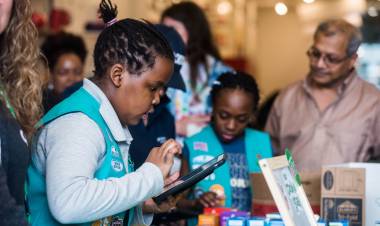Chowberry: Nigeria's Food Waste Fighting App
No hunger - that's goal number two of the UN's 17 sustainable development goals. But at the time of writing, approximately eleven per cent of the world's population is categorised as malnourished. That's about 815 million people throughout the world. Over 250 million of those live in Africa - almost 21 per cent of the total population. And at the same time, on the African continent, huge amounts of food are going to waste.
According to the FAO, about 1.3 billion tons of food end up in the garbage every year - that is one third of all food produced. Surprisingly, there is not much difference between countries in the Global North and those of the South, partly due to the fact that food loss can occur in different parts of the value chain. While in Europe the majority of food waste is caused by consumers, in African countries food loss often generally earlier on in the food chain, often due to a lack of adequate cooling.
Chowberry - an App Against Food Waste
Nigeria is categorised by the World Food Programme as a "food-deficit country" - in other words, a country that does not produce enough food for its population. But in Nigeria too, of course, perfectly edible food is thrown away every day. One reason is poor storage, but a certain amount of food is also thrown away by supermarkets. And for exactly the same reason as in Europe: because the best-before date has been passed. Software engineer Oscar Ekponimo has come up with an app that could help: Chowberry.
Retailers use the Chowberry app to scan the barcodes of food products. The app then informs them when these products have reached their best before date and automatically offers them for sale at a reduced price via the app and the accompanying website. The closer the products are to their latest-possible selling date, the lower their price will be. The result is a win-win: People with low incomes get access to cheaper products and retailers end up saving money too, because they throw away much less food.
Ekponimo is aware of the fact that people with low-incomes may not be able to afford a smartphone to use the app, so Chowberry also works together with established NGOs in the area that have been working to tackle hunger. Those aid organisations connect Chowberry to a much larger group of people, buying up and distributing the cut-price food as part of their own outreach projects. To date, Chowberry's portfolio includes retailers in the megacities of Abuja, Lagos and Port Hacourt in Nigeria, with plans to develop the initiative in even more cities in the future.
Written by Jasmina Schmidt, 29-10-2018

 uchetex
uchetex 














Comments (0)
Facebook Comments (0)